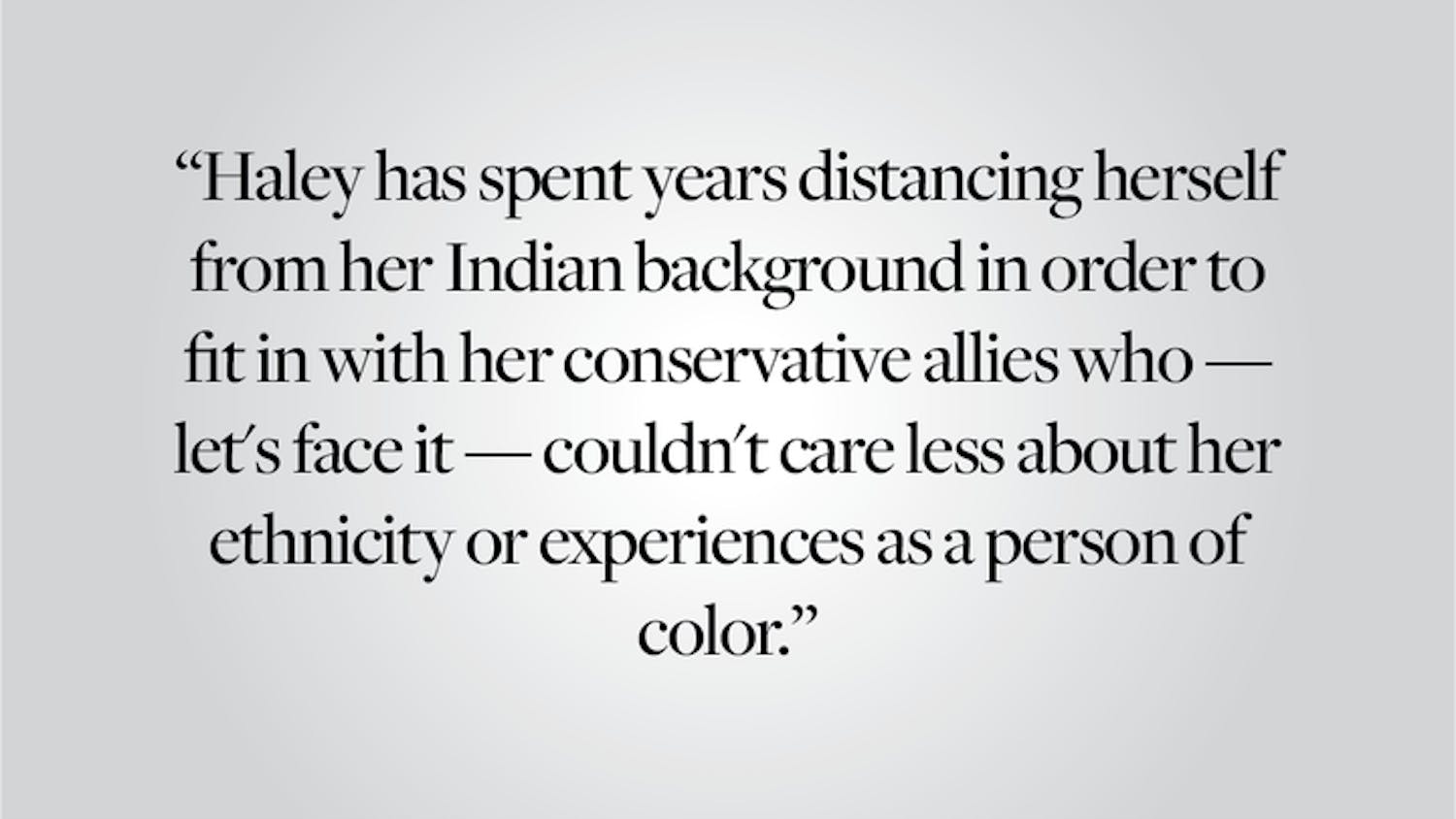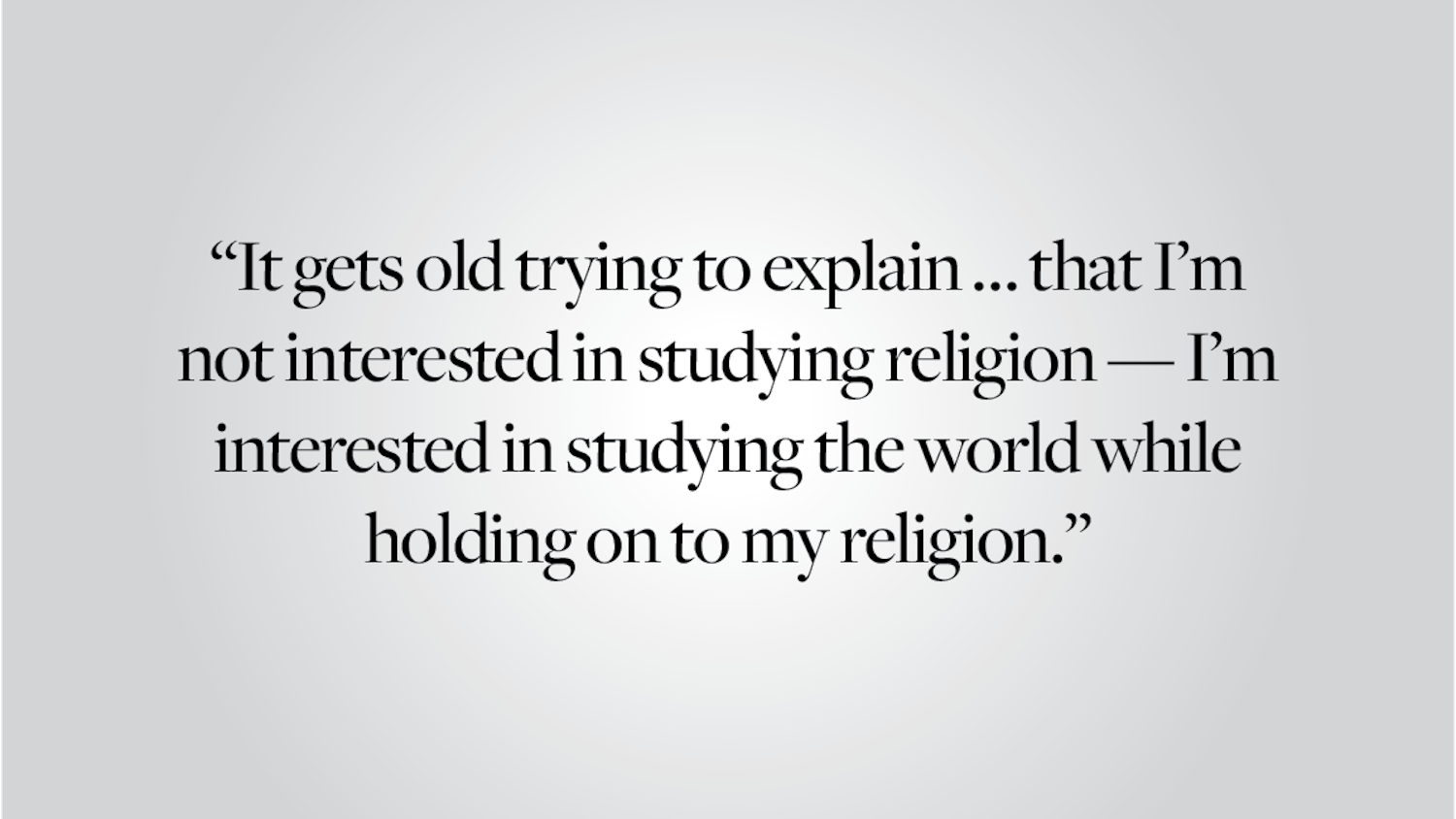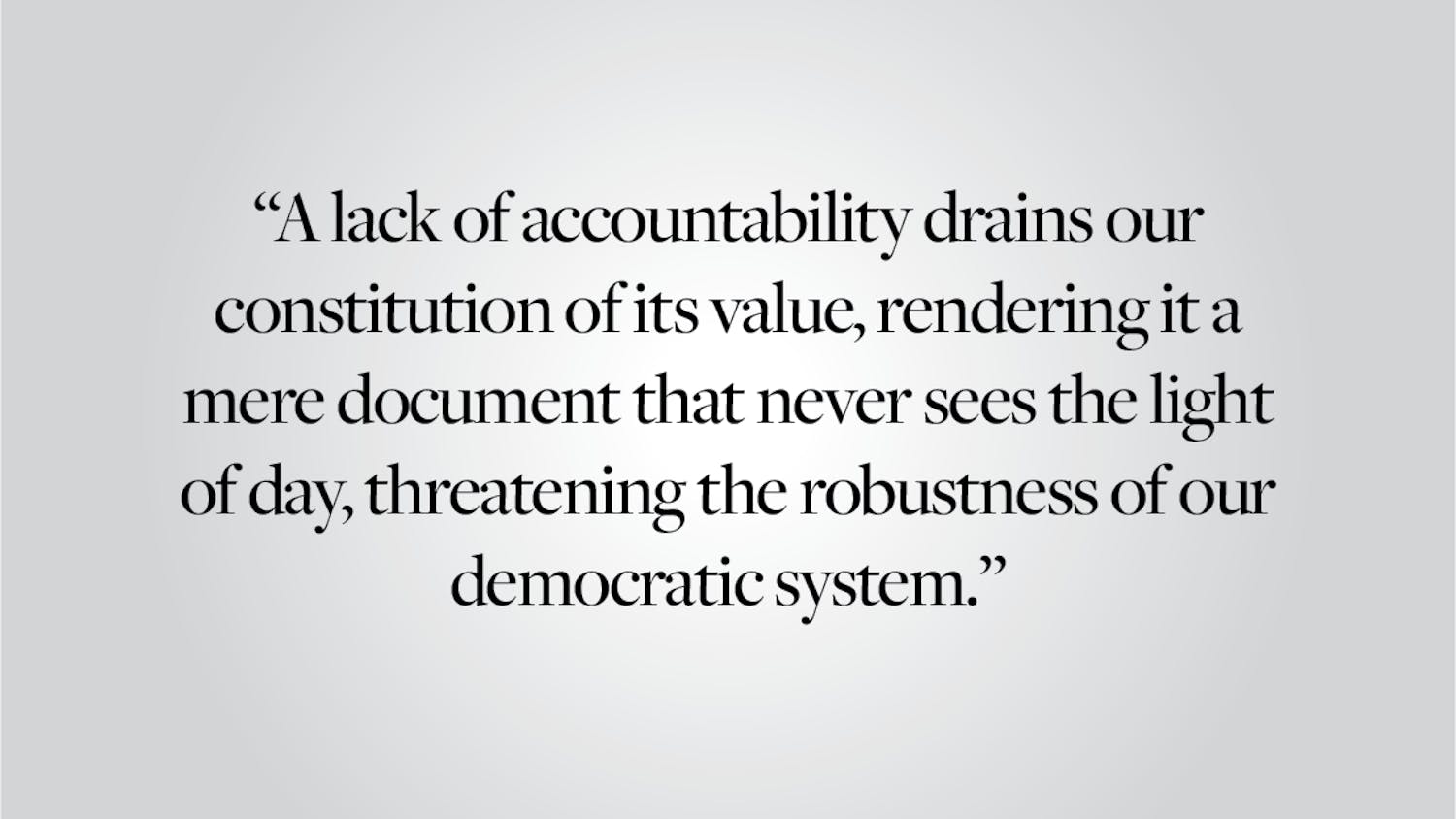If we keep getting told this is the real world, it will be. This past May, I graduated from Brown. This past August, I began my master’s in business administration program at the Yale School of Management. This past week, I turned 22. As the youngest student in my graduate program of about 600, I am constantly on the receiving end of life advice from my more “experienced” peers. This well-intentioned advice includes daily insights on the inner workings of the “real world” and “how it is.” Over the past few months, however, I have learned that while four years spent studying liberal arts at Brown may detach us from “how it is,” there are few who can better articulate “how it needs to be.”
My first encounter with the “welcome to the real world” mindset came after I attended the School of Management’s orientations on diversity, sexual assault and the Yale honor code. I was perplexed by one-to-three-hour sessions that suggested managers meet their minority employees “half-way” and “do their 50 percent,” preferenced expression of diverse global cultural norms over sexual safety and consent and framed ethics as optional. From my privileged perspective as a recent political science graduate from one of those hoity-toity liberal arts schools, this couldn’t be happening in 2015, let alone at Yale.
As I began to discuss my disagreement with the business school’s outlook on critical issues, I encountered much complacency. My peers — average age 28 — did not dispute the issues of race, gender and class that I brought up. Rather, they dismissed them as part of adulthood and the harsh realities of the real world. One of my older peers even went so far as to suggest that “once I had a real job” I would understand what taxes were and no longer support the Democratic Party.
Friends who graduated with me are starting jobs at banks and consultancies and being advised to straighten their hair to meet the professional expectations of their new reality.
While it is essential to have the conversations that have resulted from recent events on campuses like Yale’s, I beg undergraduates to not simply treat these moments as part of their elite Ivy League educations, but to also remember these events as they go out into the real world.
The challenge is not only to demand that your college community be progressive during your four years here, but also to expect the same from the worlds you enter once you leave.
Yale’s MBA program is widely accepted as one of the most progressive and diverse in the world. It is considered outstanding that women make up about 40 percent of the class. Diversity is reading cases that take place in foreign countries. At the same time, I have professors who reference “reverse sexism,” in which a woman is “sexist” against a man. The LGBTQ, women’s and black student groups put on “diversity” events — the very existence of which suggest a glaring lack of true diversity.
At first, I wondered how a school known for being the industry leader in terms of tolerance and social awareness seemed to be on the cutting edge of an outdated sense of progress. In time, however, the reason became clear. If we wait to demand change until it is comfortable, until we are settled and safe, until we are established in a given community, then of course the progress we achieve will be outdated.
There seems to be a paradox in which to implement true change you must first get to a place of power. This is likely very true. But there will always be another promotion or application that encourages you to fall in line and keep your head down just a little longer until you can effect true change.
You already go to Brown. My classmates already go to the Yale School of Management. Every moment spent waiting for a higher, more secure platform is a moment during which progress exists only in an outdated form.
As an undergraduate, you are demanding necessary changes while simultaneously developing your understanding and definitions of critical issues. The real world can get closer to this level of progress if recent graduates continue to demand progress as they define it — not as the older generation accepts it to be.
Kaivan Shroff ’15 can be reached at kaivan_shroff@alumni.brown.edu.




